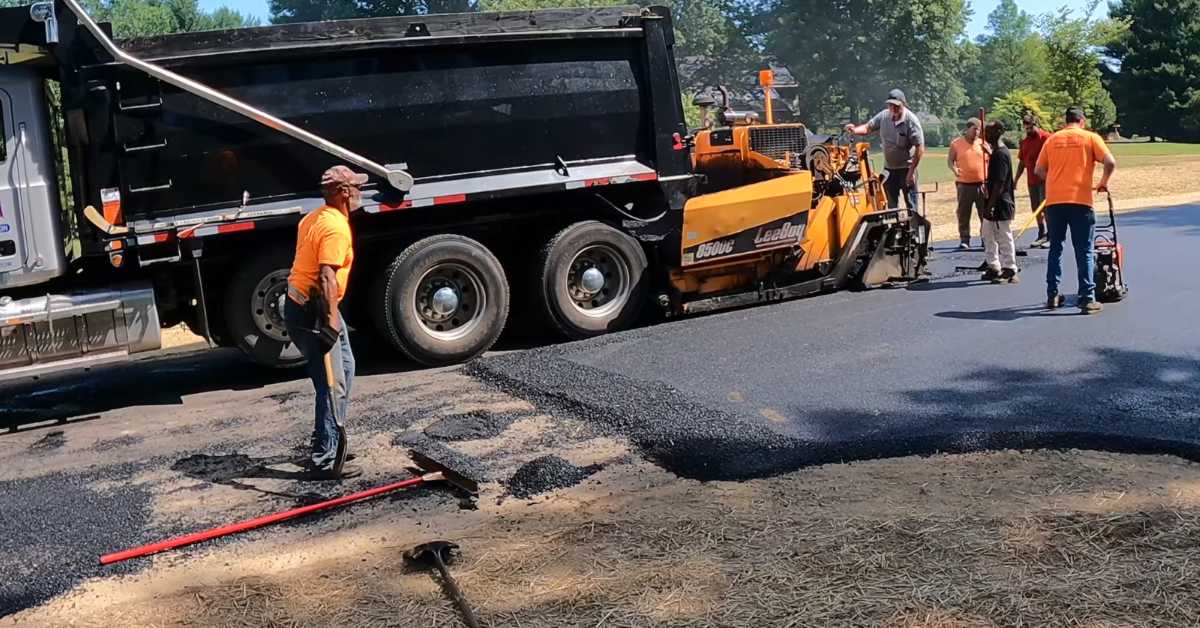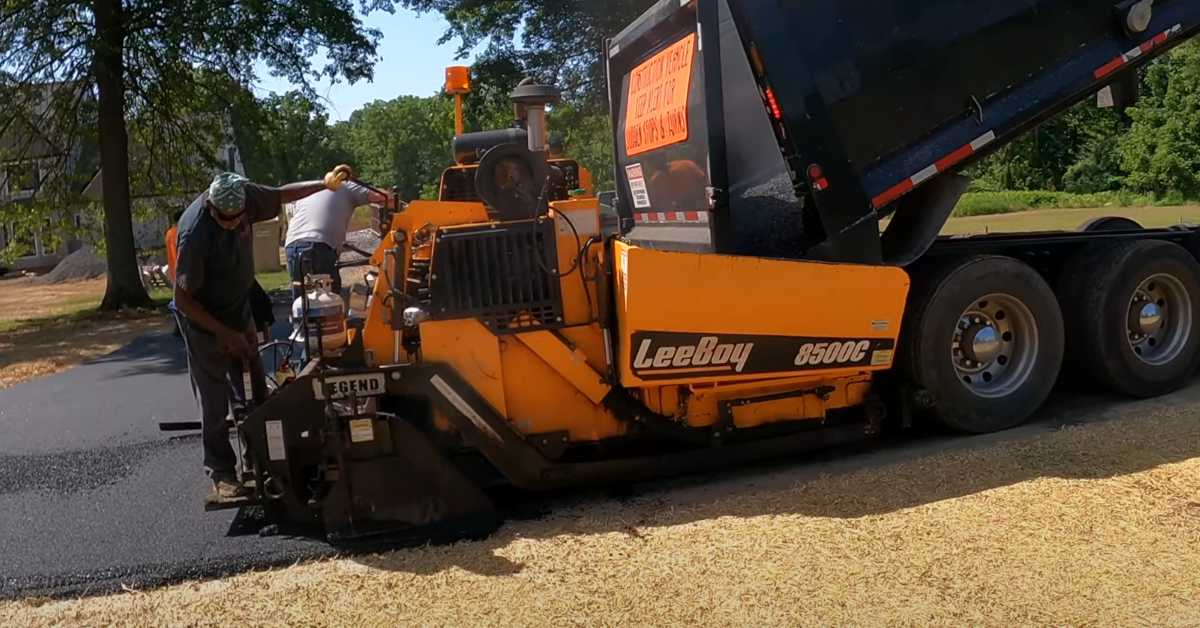After 25+ years of complex road projects, I’m Steve Axton – a licensed civil engineer and seasoned construction leader. Laying smooth pristine surfaces demands backbreaking work in harsh conditions. But great job satisfaction awaits those committed to quality infrastructure foundations vital for thriving communities.
If exploring an asphalt career or renewing priorities, review the crucial competencies below. I’ll clarify roles, safety protocols, earning potential, and advancement runways. My insider leadership insights distill the most empowering lessons for excelling on paving crews.
Why Asphalt Expertise Matters Now More Than Ever Smooth durable pavements form backbones carrying society’s mobility, commerce, and economic potential. As governments unveil trillion-dollar infrastructure bills rebuilding aging assets, skilled paving crews remain in scarce supply even amid labor shortages.
Help plug urgent needs while securing stable livelihoods in a tangible craft. Entry-level laborers gain construction fundamentals applicable across sectors. Specialized operators have managed precision equipment molding environments for generations. With new technologies like graphene and carbon nano-fibers revolutionizing materials performance, the complex challenges ahead demand focused asphalt mastery.
Core Asphalter Position Responsibilities & Advancement Ladders
All crew roles from trucking, to raking, compaction, and finishing involve backbreaking exertion. But beyond physical ability, growth-focused teams nurture skill development expanding capabilities over time. Advancement opportunities reward high performers seeking increased responsibilities and pay.
General Laborer
- Safely direct dump truck traffic
- Shovel mix promptly into defects
- Deliver tools/materials without delay
- Ensure traffic control guides motorists from work zones
Skilled Operators – Rakers, Rollers, Pavers
- Uniformly distribute hot asphalt for compaction
- Meet target density without surface defects
- Coordinate mix proportions and placements
Crew Leaders
- Model safety protocols motivating teams
- Analyze output metrics tracking progress
- Coach continuous skills improvement
- Resolve on-site issues and bottlenecks
Superintendents
- Plan coordinated project sequences
- Confirm quality protocols hit specifications
- Manage crews, budgets, and logistics
- Lead priority meetings with agency heads
For willing learners, structured training regimens impart generational wisdom from veterans retiring faster than replacements emerge. Leverage professional development investments when available to position yourself competitively for increased authority and pay negotiating from in-demand value.
Absolute Critical Safety Standards on Paving Jobs Tragically common OSHA violations incur injuries or fatalities from basic preventable mistakes. Compromising safety for expediency destroys lives, careers, and financial solvency from fines or litigation. Prioritize essential protocols:
- Stretching/warmup before shifts
- Paver/roller spotters ensure visibility
- Work zone signage guides traffic flows
- Hydration and rest breaks in heat
- Cessation of work in severe storms
- Gear like high-visibility clothing mandated
What good is hurried work if completed crews cannot return home safely? Lessons passed down by those still working past retirement age serve to protect yourself and everyone behind you.
I know firsthand that working on a paving crew is tough business. You’re out in the blazing sun and intense heat for hours on end, breathing in fumes from the heavy machinery and hot asphalt mix. It takes grit, determination, and serious hard work to pour smooth, durable pavement day after day. Average Asphalt Crew Member Salary Ranges In light of intense working conditions, paving personnel rightfully earn respectable wages sustaining middle-class lifestyles.
Asphalt Crew Member Salaries
For general laborers just getting started in the industry, you can expect to earn around $30,000 – $45,000 per year. This average range holds up across most states, whether you’re working on a North Carolina crew or tackling projects in Arizona’s desert climate. Now I know that starting wage sounds low for performing such a demanding job in the elements, but stick with it! There’s room for growth.
Let’s move up the ranks – skilled operators running our paving machines or graders take home $45,000 at the low end up to $75,000 for seasoned pros. Not bad! Foremen and crew leaders, my brothers…you all can expect between $65,000 – $95,000 directing work on the front lines. And our hardened superintendents coordinate entire projects for $95,000 – $120,000+ per year.

Now I’m writing to you directly when I say – don’t settle! Take the initiative to learn new skills, become a leader amongst your crew, and boost your earnings year after year.
Many unions secure premium healthcare, retirement, and paid training benefits as well. Please note ranges account for both public and private sectors which vary. Consistent quality and reliability primes increased earnings over time. But serve the craft first with a purpose beyond paychecks.

Prep Well for a Rewarding Asphalt Construction Career
Gain In-Demand Expertise With infrastructure constantly aging across all 50 states, skilled asphalt construction workers who master both equipment use and material science see tremendous demand for their expertise. Crewmen with additional training in quality control, sustainable practices, and supervision quickly elevate into highly coveted roles leading projects. I’ve witnessed countless laborers work their way up the ranks this way over my 25+ year tenure.
Beyond paving skills, formally studying civil engineering, construction management, or business can boost your credentials even further. Many foremen and superintendents hold 4-year degrees or added certifications. With so much complexity around zoning laws, sustainability initiatives, and public sector regulations today, well-rounded asphalt site managers with an education see the highest pay and leadership opportunities.
Cultivate Specialized Mix Design Talent Of course, you can also specialize directly in the “black gold” itself – that lovely mixture of liquid asphalt and aggregates that paves our nation’s roadways. When you distinguish yourself in creating advanced asphalt designs and gain expertise in adapting mixtures based on climate, traffic volumes, and subgrade conditions, your career potential truly takes off.
https://calculatorasphalt.com/evolution-of-asphalt-mix-design/
Businesses and government agencies pay 6-figure salaries for PhDs and licensed engineers with a proven high-performance mix of expertise and research under their belts. I landed many raises and consulting gigs thanks to my asphalt mix specialization – and you can too if designing and testing mixtures sounds appealing.
Paving Crew Questions
If exploring an asphalt construction career, below I answer the most frequent questions posed:
What are the Hardest Parts Adapting to Paving Work?
Pre-dawn rising for shifting traffic set-ups means disrupted sleep cycles. Sore, exhausted muscles acclimate over weeks. Tuning out noisy machinery poses challenges. But rewards come in supporting regional mobility and growth.
What Credentials Help Land First Asphalt Laborer Roles?
While optional, a commercial driver’s license (CDL), OSHA safety certification, and equipment operation credentials offer hiring advantages. Most vitally, demonstrates consistent reliability.
How Soon Could Someone on a Crew Move into Operating Equipment?
Express interest in learning various equipment like pavers and rollers. Crew leaders note standouts helping operators daily. Consistent work ethic and retention of training accelerate advancement.
Why Must Asphalt Be Compacted to High Densities?
Achieving minimal air voids removes pockets allowing water intrusion to erode foundations. Insufficient compaction causes premature cracking, raveling, and instability despite quality mixes.
Can Working on Private Paving Crews Pay Better than Public Agencies?
Yes, private crews often operate on bonus-incentivized production output models compared to fixed public wages. But public jobs enable more schedule stability. Weigh tradeoffs carefully.
Workers who consistently ace the fundamentals paved my way to success. Whether you want to scale the ranks as crew leader someday or specialize in complex pavement mix designs, preparing your mind and body while mastering the basics separates the all-stars. And those all-stars go on to earn very lucrative salaries over fulfilling, decade-spanning careers. To all starting or advancing paving careers – know your sweat and grit build vital community infrastructure foundations slated to bear mobility advancements for generations. Stay diligent in craft and safety!
Reach out anytime for wisdom direct from my 25 years of experience in this exciting industry. Think hard about paving your way to prosperity! steve[@]calculatorasphalt.com